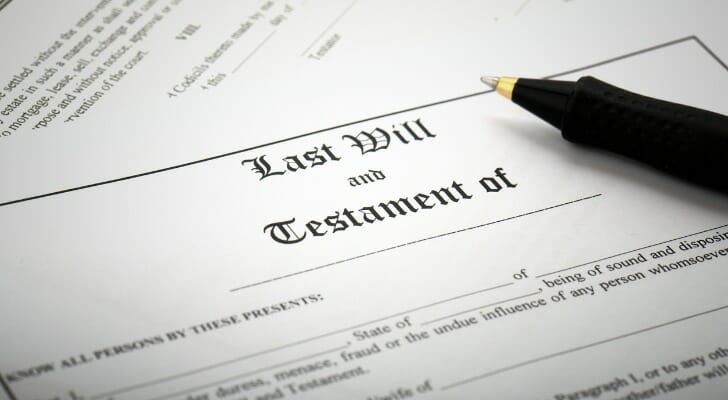Estate planning has become less of a priority for middle-aged adults, a new survey indicates. Americans between 35 and 54 years old are for the first time less likely to have a will than people ages 18 to 34, according to a Caring.com survey of 2,500 adults. That’s not a good sign for middle-aged adults, especially those with children they’d like to leave something for. An estate plan is an important element of financial planning, as it ensures your assets will pass to your loved ones or the causes you support at the time of your death. A financial advisor with estate planning experience can help guide you through this important phase of planning.
Estate Planning Trends
For the first time since Caring.com started surveying Americans about estate planning, the youngest adults are now more likely to have estate planning documents than middle-aged adults. Nearly 27% of people ages 18-34 polled said they have estate planning documents, up from 18% in 2019. Meanwhile, less than 23% of people in the 35-54 age group have estate planning documents, down from 37% two years earlier.
The oldest age group in the survey has seen a similar dip in the prevalence of estate plans. Although people ages 55 and up are the most likely to have a documented estate plan, that number has fallen from 60% in 2019 to 44% in 2021.
“Concerningly, those in the age groups that need these documents the most are less and less likely to actually have one,” Caring.com’s managing editor Daniel Cobb wrote. “There is good news, however … the number of younger adults with a will or other estate plan increased by 63% since 2020. This demographic was highly motivated by COVID-19.”
Estate planning appears less of a priority for the country as a whole. Only 33% of American adults have estate planning documents, down from 42% in 2017. The survey, which was conducted in conjunction with YouGov in December, asked respondents why they don’t have a will or other estate planning documents. “I haven’t gotten around to it” remains the No. 1 reason (34.2%), while “I don’t have enough assets to leave anyone” is the second-most prevalent response (28.1%) from people without wills or trusts.
“COVID-19 hasn’t changed the fact that almost two-thirds of Americans say that having a will is somewhat or very important, yet only one-third actually have estate planning documents,” Cobb wrote.
Plan Your Estate With These Documents
Estate planning isn’t just about what happens to your money and assets when you die. An estate plan can include healthcare directives and vital directions for the care of minors in the event of an unexpected death. Here’s a brief rundown of some of the most important, and common, estate planning documents to consider having:
Last Will and Testament
A last will and testament is one of the most basic estate planning documents available. A will enables you to dictate how your assets will be distributed when you die. A will names the beneficiaries – people or organizations – who will receive your property, as well as an executor who will be charged with carrying out your wishes and settling any outstanding debts. A will can also name someone to serve as a guardian of your children.
Creating a will can be relatively straightforward, especially if you don’t have an overly complicated estate. You can draft a will online through one of many services like LegalZoom or Nolo.com, or enlist an estate planning attorney or financial advisor to help with the process.
A Trust
A trust is a legal entity created to hold your assets and transfer them to beneficiaries when you die. People with large or more complicated estates can set up a trust to ensure their assets are distributed in a tax-efficient process outside of the probate process. A trust can either be revocable or irrevocable. While the former can be changed during your lifetime, the terms of an irrevocable trust are permanent at the time the document is signed. Like an executor, a trustee is a designated person responsible for managing the trust and transferring its assets to beneficiaries. Trusts, which come in numerous variations, can shield assets from creditors and minimize estate taxes that may be owed upon your passing.
While you can technically create a trust online, working with an estate planning attorney or financial advisor who specializes in estate plans may be your best option for correctly establishing a trust. After you’ve chosen a type of trust, named your beneficiaries and trustee, your attorney or advisor will formalize the details by creating a declaration of trust, deed of trust or trust instrument. Once your attorney has completed the document, you may need to sign it in front of a notary. You’ll then fund the trust by transferring your assets to it.
Power of Attorney and Advance Directives
Power of attorney is another important estate planning tool that authorizes another person to act on your behalf in certain circumstances. Durable power of attorney can be especially vital in the event of an accident that renders you temporarily incapacitated or unable to make important financial decisions. The person who is given legal authority to act on your behalf is known as an agent or attorney-in-fact. They may be given broad authority or limited powers, depending on your wishes as the principal.
Advance directives stipulate a person’s wishes regarding end of life care or what should happen if they become incapacitated. Similar to durable power of attorney, an advance directive will outline how to handle your healthcare if you are unable to voice your opinions in the event of an accident or illness. Despite the importance of advance directives, nearly a fifth of all survey respondents said they did not know what the term meant.
Generally, you need to be at least 18 years old and of sound mind to create an advance directive. It should be put in writing and be signed by you and one or more witnesses. The directive may also need to be notarized, but you’ll need to consult your state laws for specifics.
Bottom Line
Despite being an important element of adulthood, estate planning seems to losing traction, at least among middle-aged and older Americans. A Caring.com survey found that young adults ages 18 to 34 are now more likely to have a will or other essential estate planning documents than people between 35 and 54. While some people may just need a will to plan their estate, others may opt for a trust, which enables an estate to bypass probate court. Power of attorney and advance directives are also useful tools that can play a roll in your estate plan.
Estate Planning Tips
- A financial advisor can be a valuable partner in financial and estate planning. Finding a qualified financial advisor doesn’t have to be hard. SmartAsset’s free tool matches you with up to three financial advisors in your area, and you can interview your advisor matches at no cost to decide which one is right for you. If you’re ready to find an advisor who can help you achieve your financial goals, get started now.
- SmartAsset’s comprehensive Estate Planning Guide can help you make important decisions about your needs. It includes a state-by-state breakdown of estate taxes and inheritance laws, as well as other resources.
Photo credit: ©iStock.com/courtneyk, ©iStock.com/roberthyrons, ©iStock.com/RichLegg


